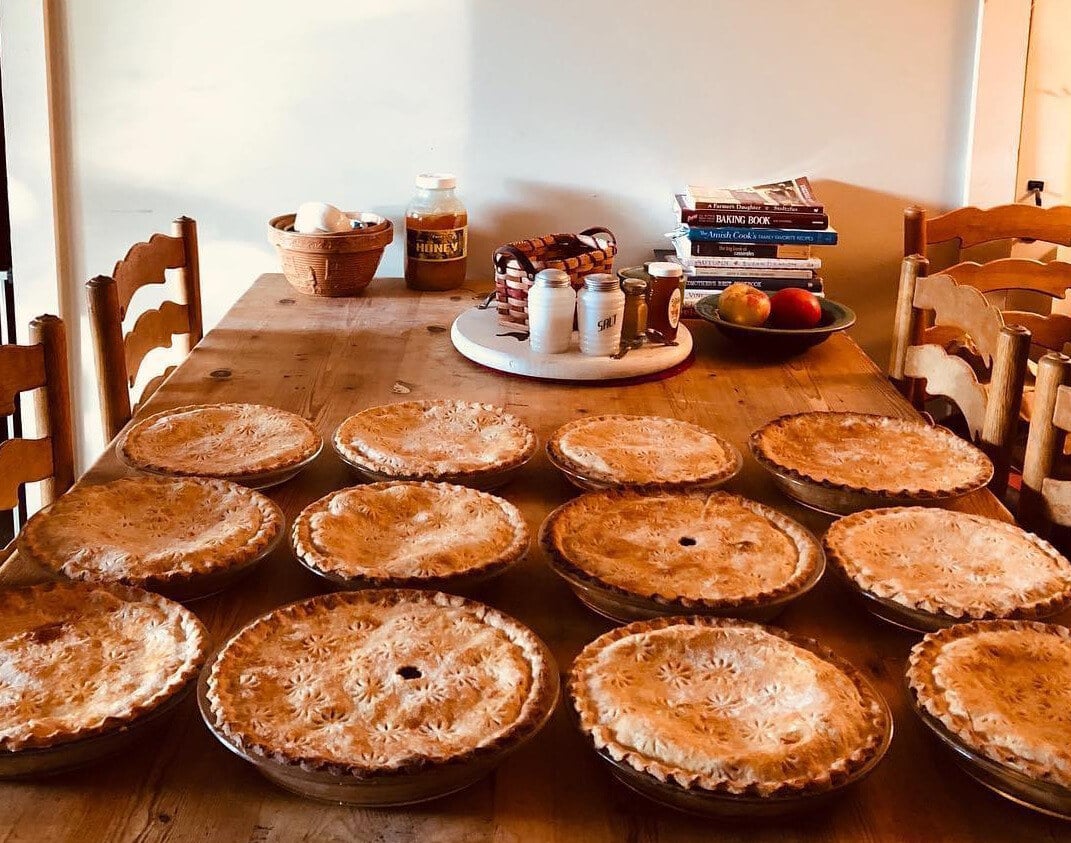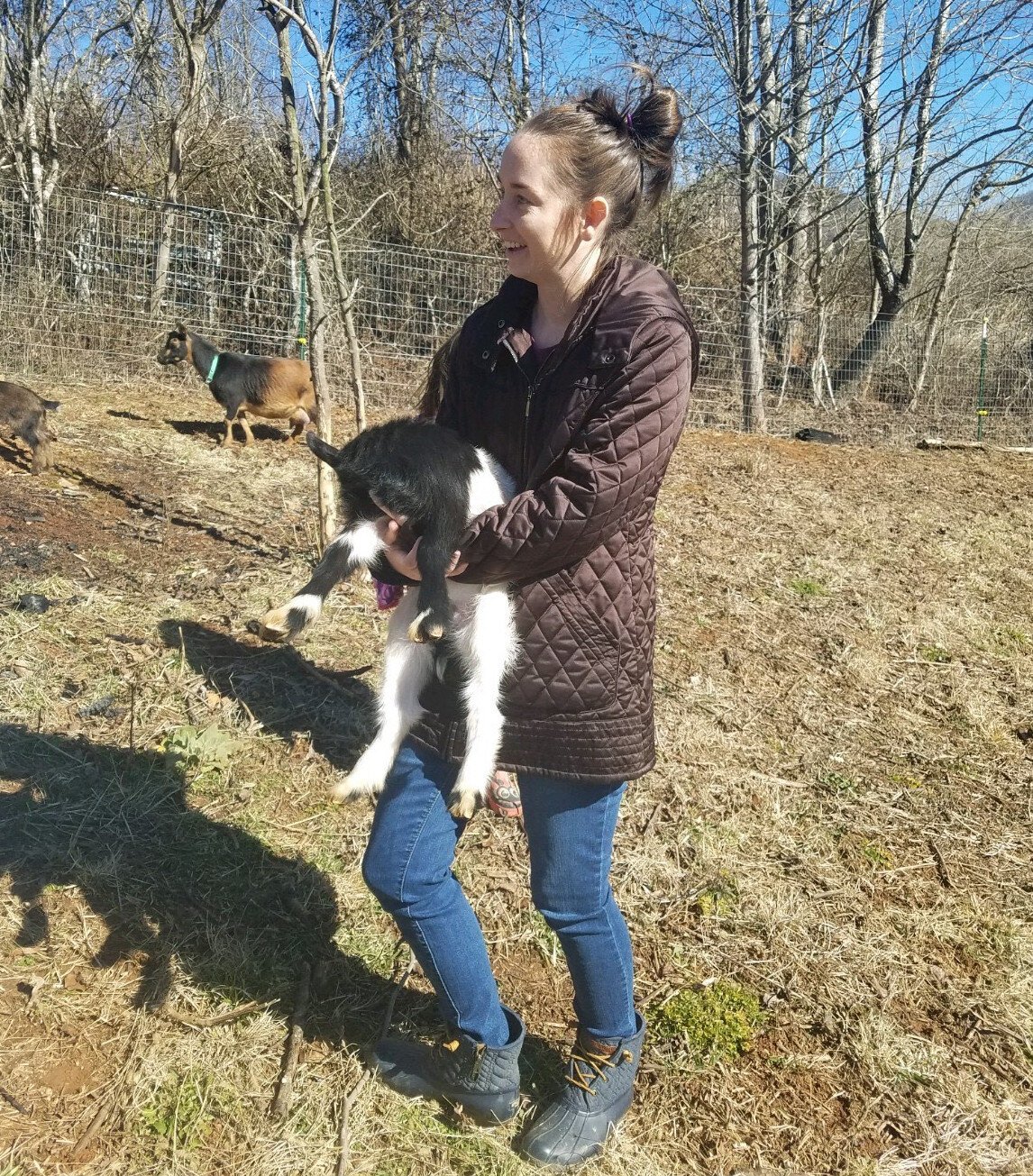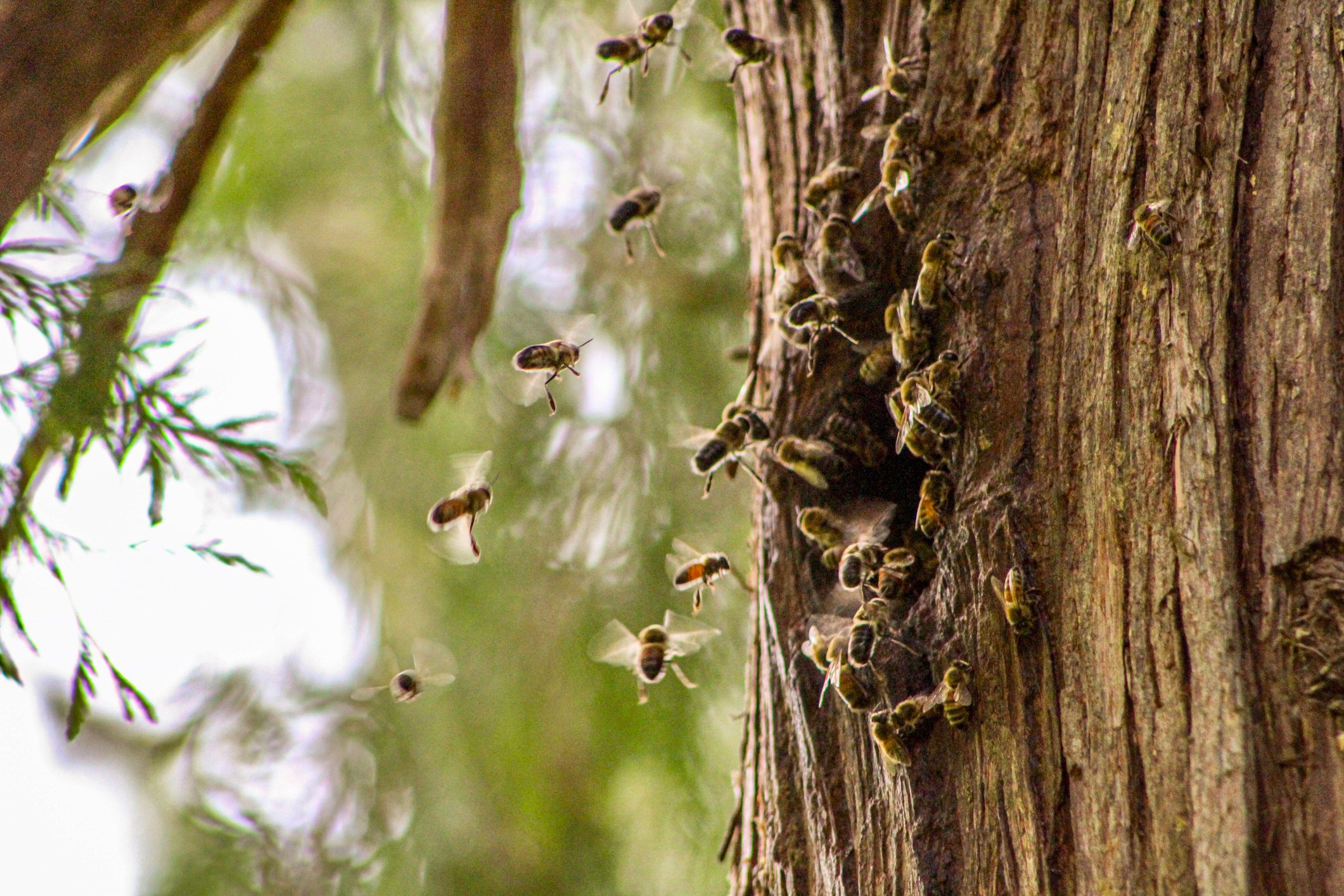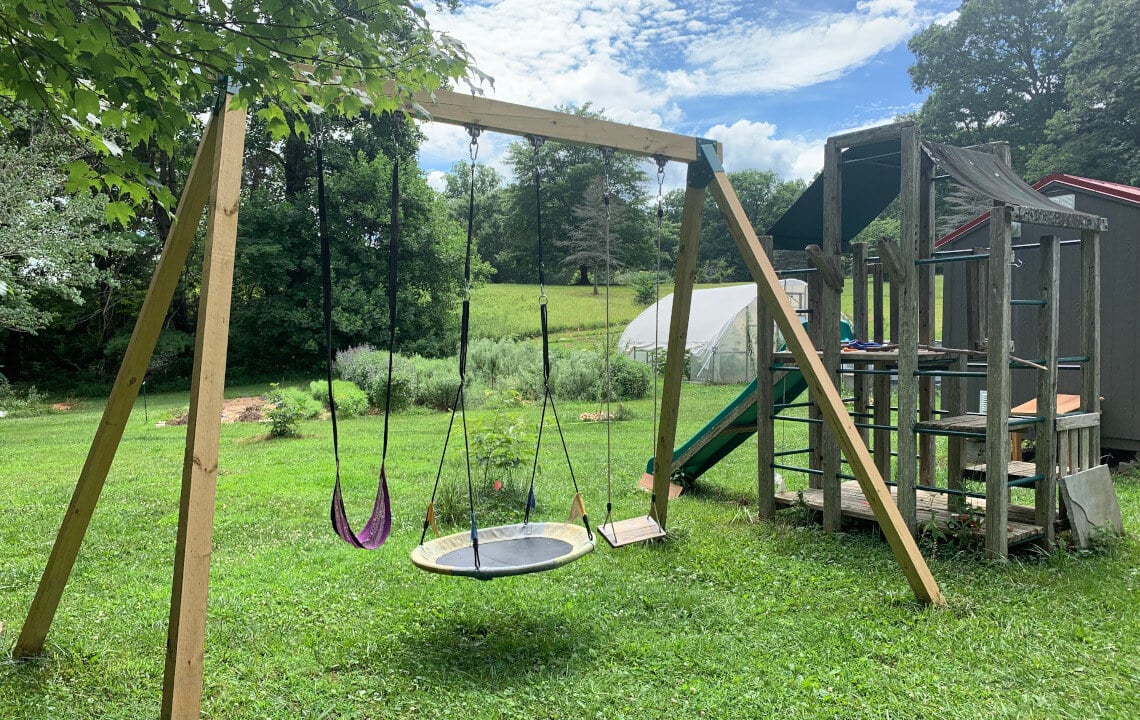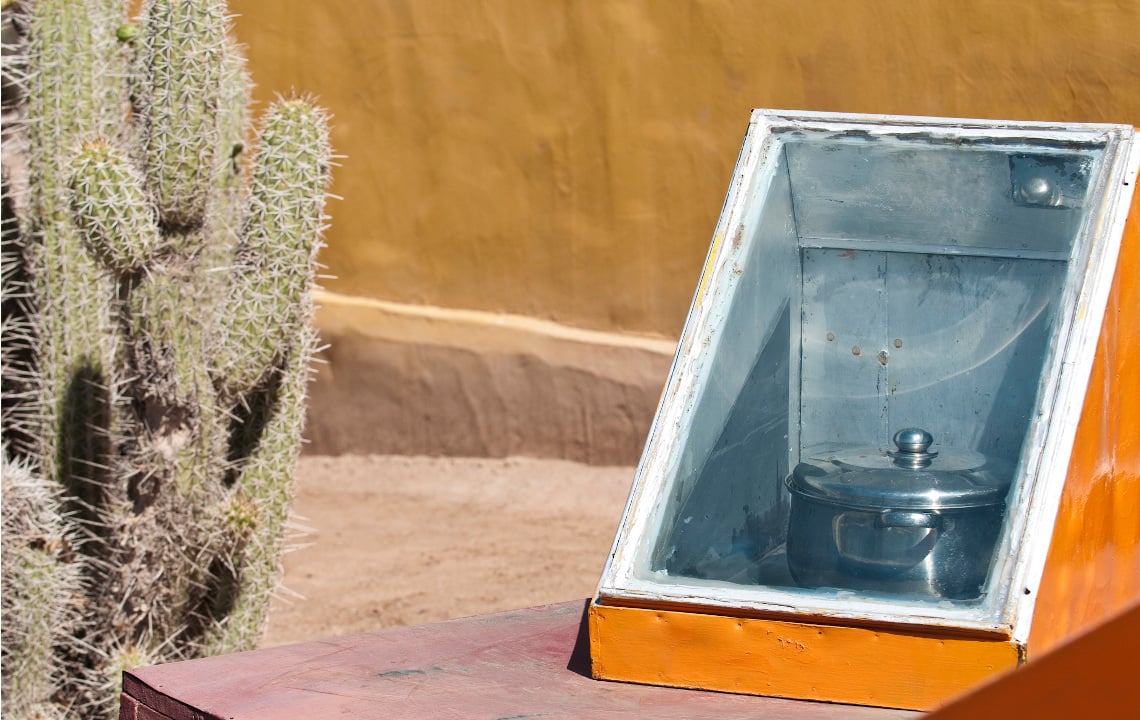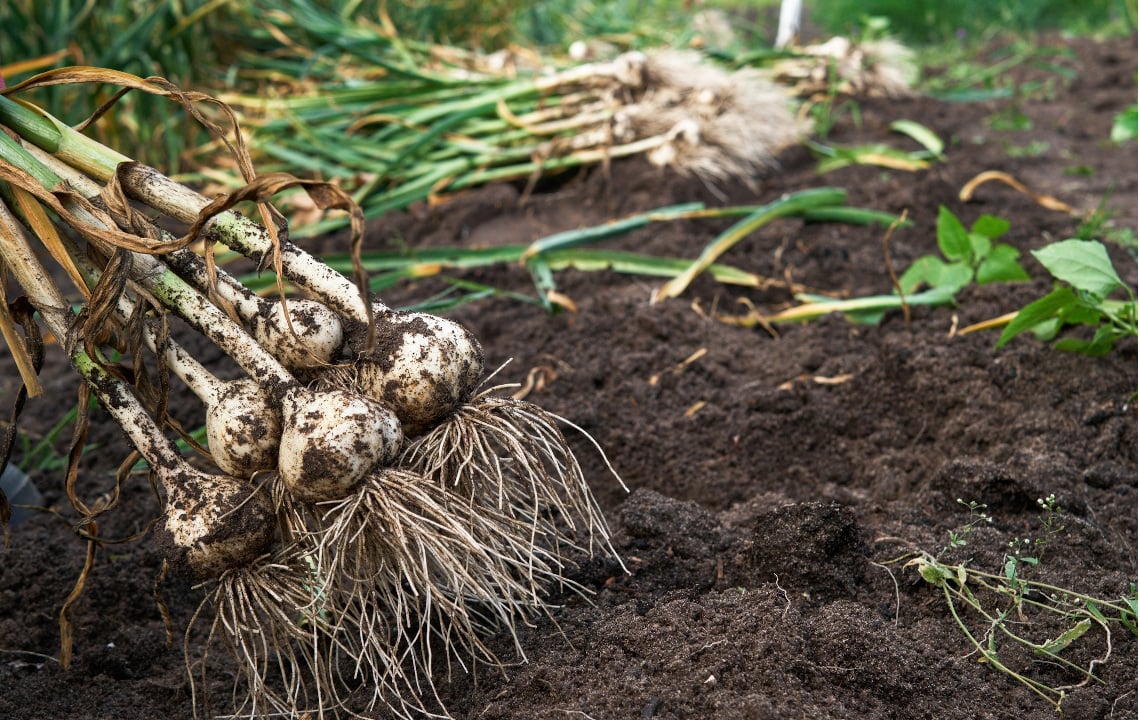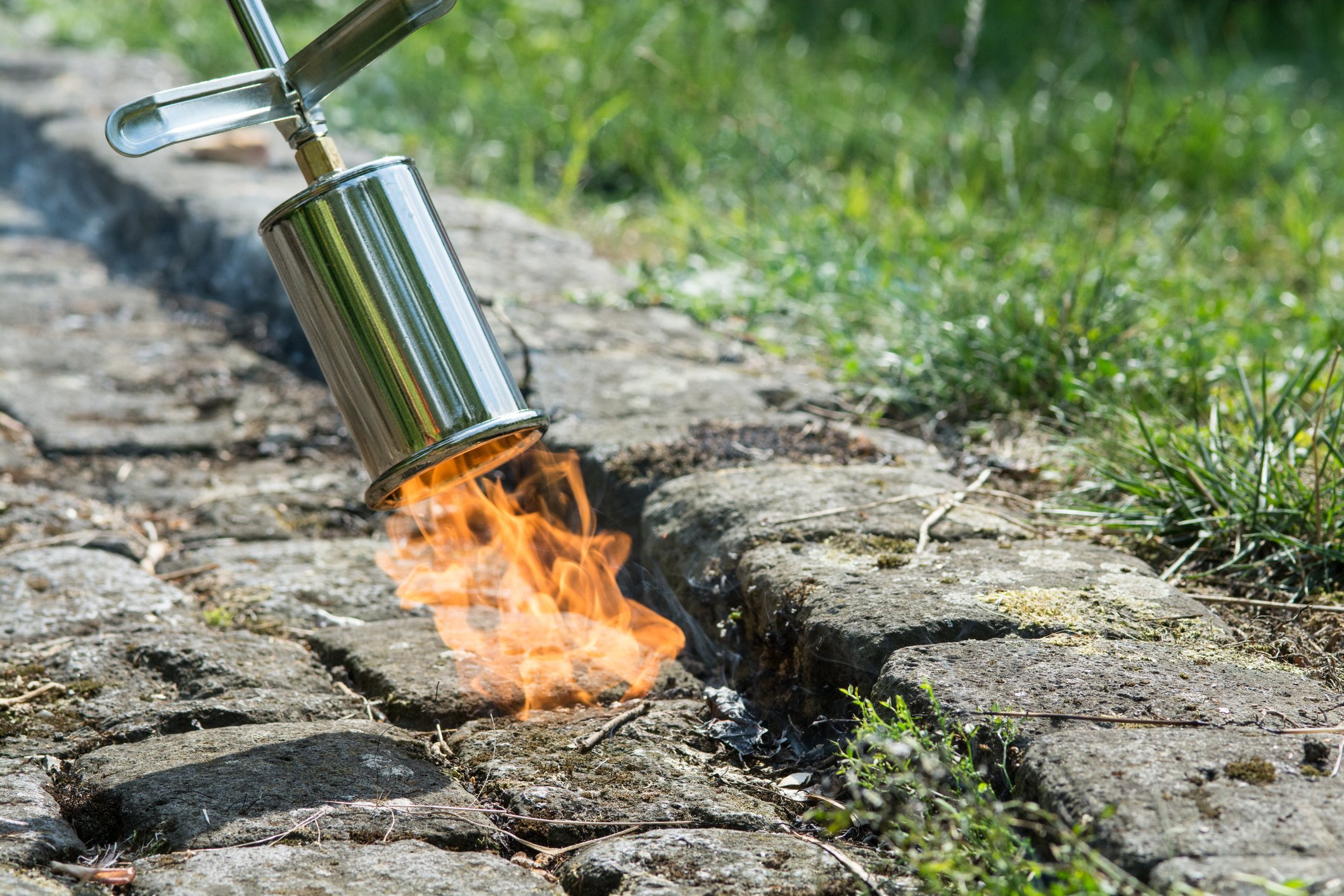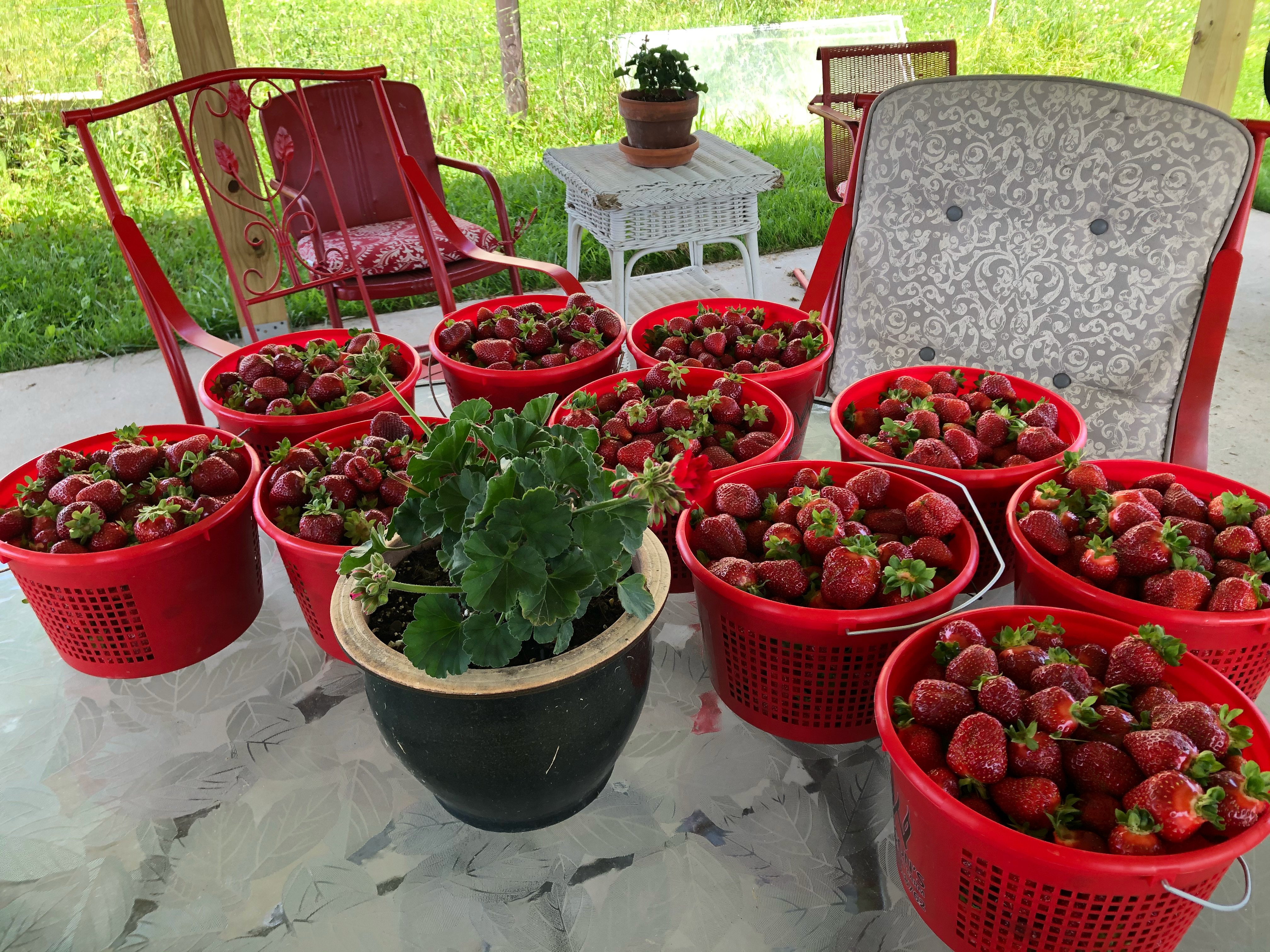The Webbs started a daylily business from scratch with a next-to-nothing financial investment and a lot of hard work. Read their story and get inspired to grow your own garden business dreams. Driving up to Mickey and Ki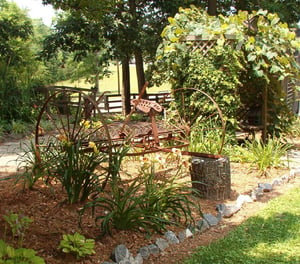 m Webb’s homestead, you’d guess they were both born with green thumbs.
m Webb’s homestead, you’d guess they were both born with green thumbs.
Nestled between farms, churches and state game lands is their daylily farm, a lovingly-tended patch of earth in the foothills of North Carolina. The daylilies have finished blooming for the year but their glossy foliage enlivens the landscape even on a cloudy fall afternoon.
Looking at this scene, it’s hard to believe these two didn’t consider themselves gardeners 20 years ago when their business, Bear W Daylily Farm, began to take shape.
“Both of our parents had always gardened,” Kim said. “You know, as a kid, you do what you’re told. So I weeded and did things like that. But I didn’t much like to be outside and garden.”
The Webbs got their start more than two decades ago when Kim was laid off from her job. Her aunt and uncle had a daylily business near Asheville, NC, and they gifted the couple with a truckload of the flowers to grow and sell, hoping to help replace Kim’s lost income.
There was a steep learning curve and progress was slow at first, but the Webbs stuck with it and now they spend a lot of time in the garden: weeding, fertilizing, mulching, dividing and transplanting more than 1,300 varieties of daylilies.
With patience and commitment, this couple built their business from the ground up. They sat down with us to share the story of their farm’s growth beginning with that seed of an idea 20 years ago.
If you’ve ever considered starting your own backyard nursery or garden business but don’t think you have the skills or experience, take heart. With just a small batch of daylilies and the sweat of their brows, Mickey and Kim's business is still growing right alongside their marriage. Let their story inspire you to dig deep and plant your own dreams.
Start where you are, use what you have
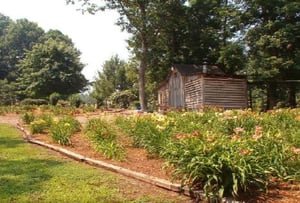 After Kim’s aunt and uncle gave the Webbs that truckload of daylilies, she went home to plant them over the summer while she looked for a new job.
After Kim’s aunt and uncle gave the Webbs that truckload of daylilies, she went home to plant them over the summer while she looked for a new job.
Mickey rolled up his sleeves when he got home from his 9-to-5, and together they started turning their rural property into a brightly-colored landscape of prolific blooms.
Early on, the Webbs did everything without farm equipment, which would have been an expensive up-front investment.
They shoveled mulch and fertilizer into the back of their pick-up and hand-dug new beds for planting areas. Sticking with the daylily varieties they’d been given at first, they waited for the business to grow before investing in new, uncommon cultivars.
They got started before digital marketing was a thing and relied on word-of-mouth to bring customers to the farm.
As people started trickling in, the Webbs spent their weekends walking the property with daylily lovers, digging up the plants they picked out and loading the flowers right into the customers’ vehicles.
Kim said she and Mickey didn’t know the names of the different lily varieties at the time. “We were just selling colors back then,” she said with a laugh.
Despite the slow start, the Webbs persisted. Kim found full-time work as an administrative assistant and started learning new skills in her job that paid dividends for the farm. She learned how to use Excel and other programs and eventually created maps and a detailed database of all the plants in their gardens.
Kim said she has “God’s perfect timing” to thank for the eventual growth of their business.
“I got frustrated early on when things weren’t moving quickly. But you just have to stick with it,” she said. “The Lord worked it out and planned it all.”
Watch the blossoms begin to unfold
.jpg?width=1000&name=seufer%20lily%20photo%201%20(002).jpg)
With time and experience, the Webbs began to feel confident about expanding their business. They invested in uncommon daylily cultivars and their loyal customers had new plants to add to their growing collections.
They also decided to start hybridizing their own varieties. Some plants sell for as much as $180 and the Webbs wanted to try their hand at crossing varieties and watching something new emerge.
But the hybridization process requires enormous patience as they would soon find out.
“You plant a seed and have to wait two or three years before ever seeing a bloom,” Kim said.
Then, she said, if you still want to tweak the bloom, you might decide to cross it with yet another variety, waiting two or three years again before introducing the new daylily to customers.
In typical fashion, the Webbs stuck with the painstaking process.
Within a few years, they began selling some of their own varieties. They still hybridize today and are planning to introduce some new plants next spring. Some of these hybrids may earn as much as $100 per plant.
The Webbs also began to invest in farm equipment, buying a Bobcat tractor and a dump bed for their truck. Mickey says the equipment has paid for itself many times over; fertilizing, mulching and digging all became less cumbersome and time-consuming.
Enjoy your success and appreciate your customers
 The Webbs continued with their hard work, applying for and receiving a special honor with the American Daylily Society. They became an official display garden, which means their homestead is part of an annual farm and garden tour. They have to keep the gardens in tip-top shape to maintain the designation, but they say the benefits to the business have been worth it.
The Webbs continued with their hard work, applying for and receiving a special honor with the American Daylily Society. They became an official display garden, which means their homestead is part of an annual farm and garden tour. They have to keep the gardens in tip-top shape to maintain the designation, but they say the benefits to the business have been worth it.
Mickey (pict.jpg?width=165&name=mickey%20tractor%202%20(002).jpg) ured left) decided along the way to thank the loyal customers who helped them build their business.
ured left) decided along the way to thank the loyal customers who helped them build their business.
The Webbs started hosting an annual customer appreciation event in June when the daylilies are in full bloom, providing free barbeque and bluegrass music.
This year they had nearly 400 customers attend, and have hosted people from as far away as Canada and the UK.
Be willing to try new things
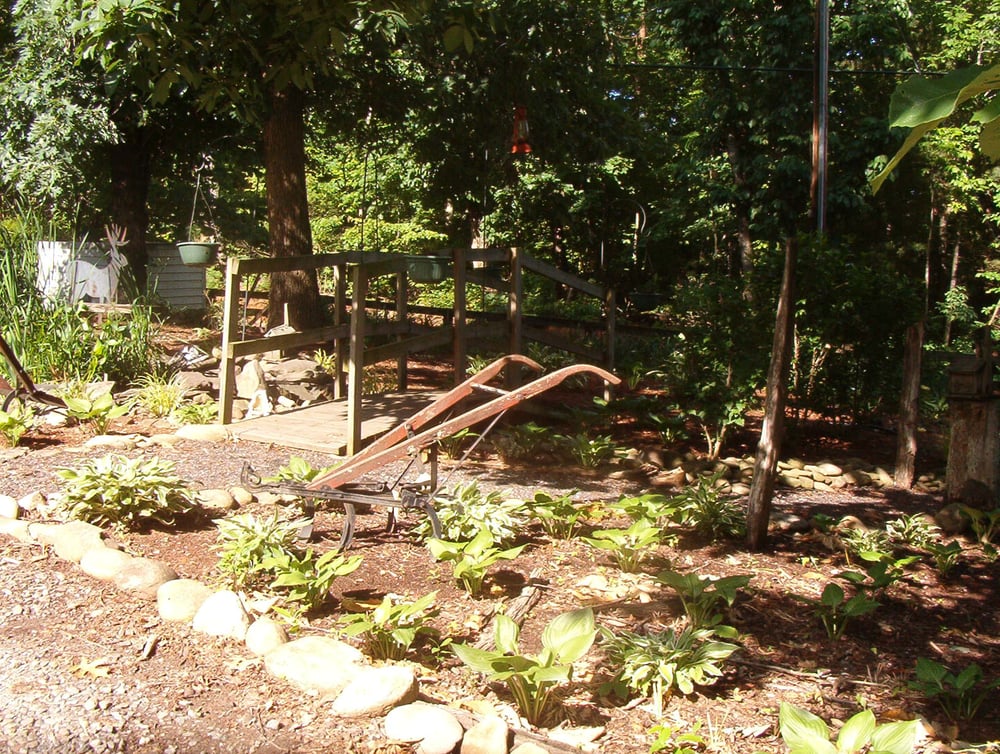
In the world of small business ownership, ebbs and flows are part of the process. While the business is still going strong, Mickey said the market isn’t what it once was. Most of their customers are older; he thinks younger people haven’t caught on to daylily gardening yet and he doesn’t know if they will.
The Webbs have learned how to grow plants and run a business, though, and they aren’t showing any signs of slowing down.
Mickey is experimenting with food crops like broccoli and pea microgreens, potatoes and berries. He is building a greenhouse in the backyard so he can provide fresh early-season vegetables to health-conscious customers.
Mickey also builds wood furniture for children like small chairs made into reindeer shapes. They are open to trying new things and learning as they go along.
Advice for aspiring business owners
Kim said she hates to see small businesses get started only to close up shop within a year or two. She also doesn’t want aspiring business owners to see their operation and think it’s always been so well-organized and established.
“It’s hard work. I think people think it’s a piece of cake. People should start small.” she said.
With a real commitment to building a homestead business, the Webbs have come a long way from that truckload of daylilies. These days, they sell the plants online and at the farm.
They are in a rhythm that works for them, picking up their gardening activity in the spring, selling daylilies all summer and using late summer and early fall to divide and transplant the lilies so they multiply prolifically year after year. They spend winter working on accounting paperwork, marketing and other business tasks.
The Webbs want people to know that faith has been the most important part of their business journey.
“There is nothing we could have done without God,” Mickey said.
More than 20 years after they embarked on their gardening journey, the Webbs’ homestead is a picture of love and hard work.
.jpg?width=1000&name=seufer%20lily%20photo%202%20(002).jpg)
What dreams will you cultivate on your country land?
Check out The Country People We Have Met for more inspiring stories of rural entrepreneurship.
Visit the Webb's online at: http://www.bearwdaylilyfarm.com/


.jpg?width=1140&name=Lead%20(2).jpg)



